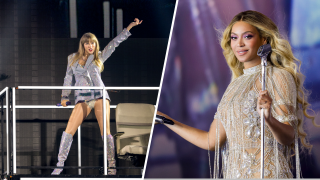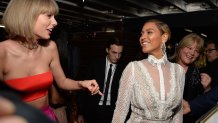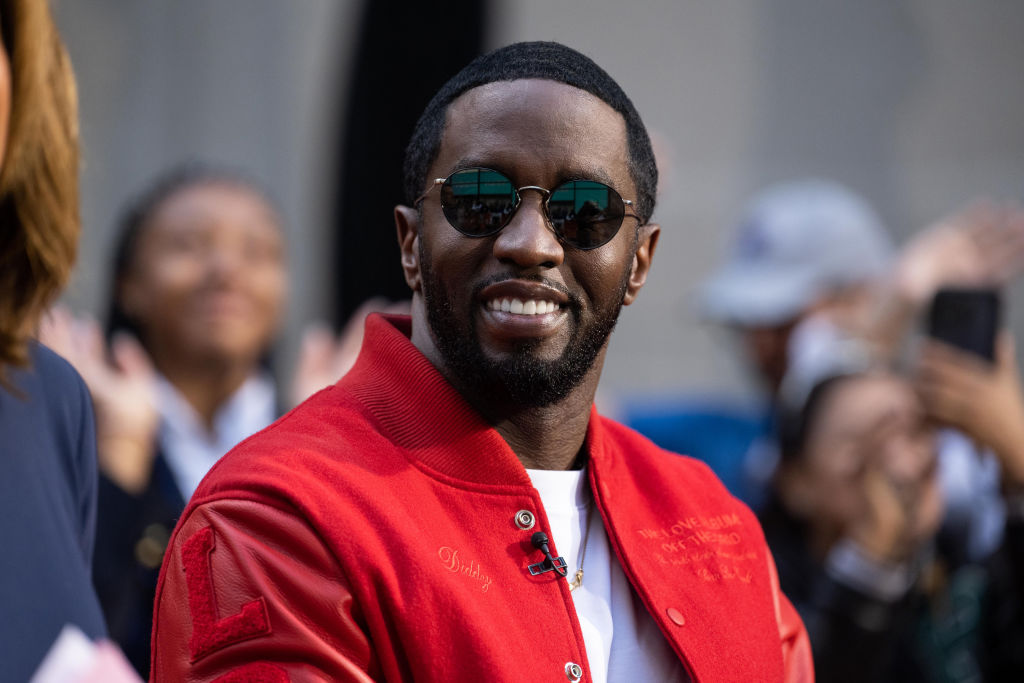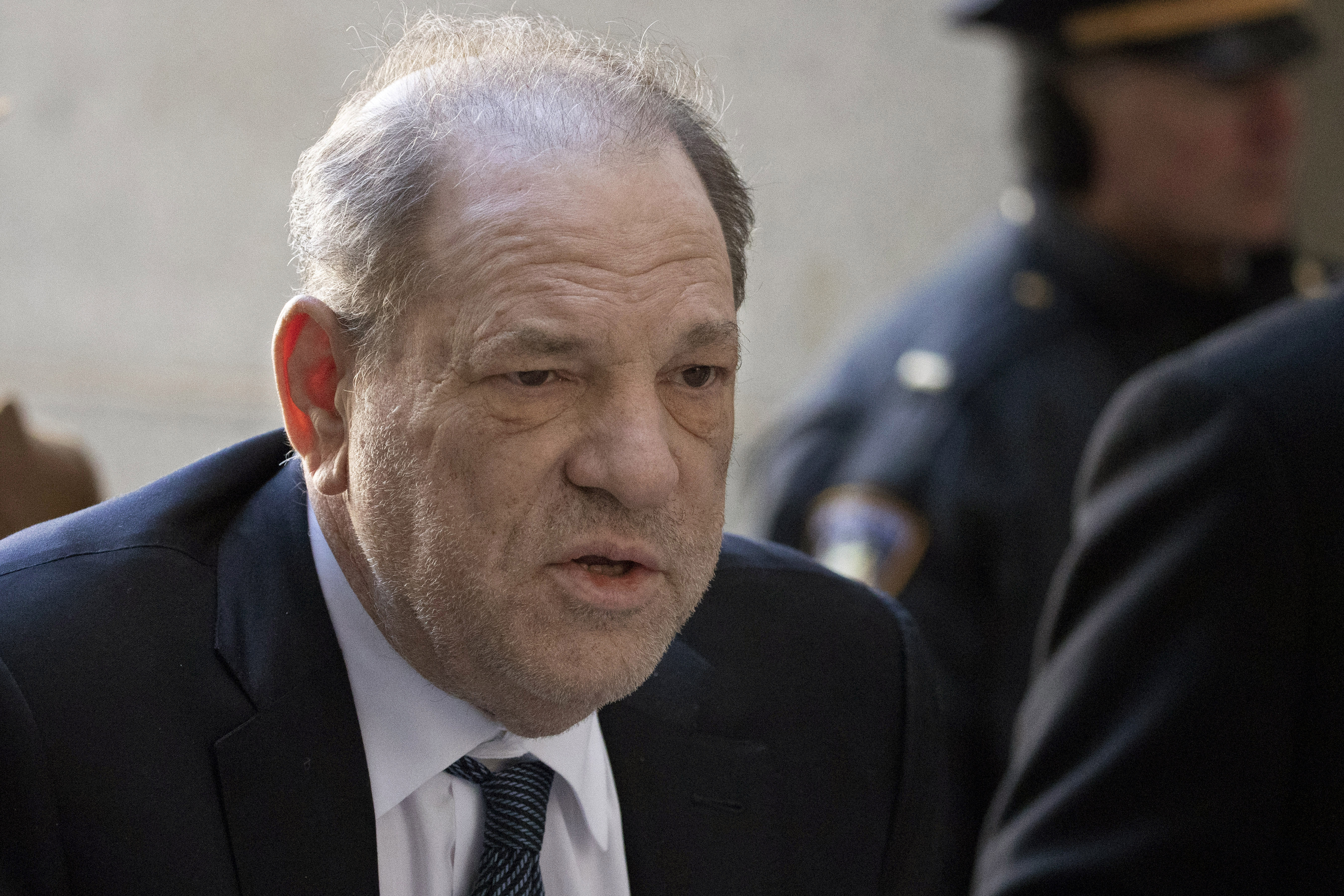
For Maddie A., an executive assistant in New York City, Taylor Swift has been with her for every major moment in her life — from high school prom to present day, more than a decade later.
Maddie has also loved Beyoncé Knowles-Carter since childhood, having danced to her music since the pop star's days as a member of the group Destiny's Child.
Both have been the soundtrack to her life, she says.
"Taylor’s debut album came out when I was, like, an emotional 12-year-old. So ‘Teardrops on My Guitar’ really hit home,” says the 29-year-old, who asked not to use her last name because her boss is a public figure. “And Beyoncé definitely, I don't think, is celebrated in the way that Taylor is."
Get South Florida local news, weather forecasts and entertainment stories to your inbox. Sign up for NBC South Florida newsletters.

Both Swift and Beyoncé have been touring since this past summer, each performing undisputedly exceptional shows. And each have since announced concert movies that will hit AMC theaters; Swift's "The Eras Tour" premieres Oct. 13, while "Renaissance: A Film by Beyoncé" was just announced to hit theaters Dec. 1.
With stunning dancers and choreography and amazing special effects, just about everyone interviewed for this story called both concerts “life-changing.” But even as their tours have been lauded for helping to boost the American economy, an old narrative that has intermittently plagued these two artists for years has reemerged:
Entertainment News
Are you a Swiftie, or a member of the BeyHive? And who puts on a better show?
Perhaps the more important question, however, is why the comparison between these two radically different female artists is even a question at all. Exquisite Williams, a 23-year-old writer from Atlanta who attended both Swift’s "Eras Tour" and Beyoncé’s "Renaissance World Tour," has an idea.
"The only reason they're getting compared is because they're both at the top of their respective games, and there's no one else to compare them to," she says. "But they're not even peers with one another ... they're not doing the same thing."
She was so passionate about this narrative that in August, she took to X — the platform formerly known as Twitter — to write about it.
"Y’all keep comparing Beyoncé and Taylor I’m gonna start comparing Ed Sheeran and Usher so y’all hear how dumb you sound," she wrote in a now-viral tweet.
Of course, this unspoken rivalry has been brewing for years. For nearly two decades, Swift and Beyoncé have competed against each other for music awards. For many fans, the 2009 moment Kanye West interrupted a then-20-year-old Swift as she accepted the award for the best female video at the MTV Video Music Awards to argue that Beyoncé was more deserving is etched into their brains.
"I'm really happy for you, and I'mma let you finish, but Beyoncé had one of the best videos of all time," the rapper shouted into the microphone. Later that evening, when Beyoncé won video of the year for "Single Ladies," she invited Swift onto the stage to speak with her.
In the years since, the two have competed for several VMAs, including earlier this year; on Sept. 12, they squared off again in several categories. They've also gone head-to-head at the Grammys, with both nominated in 2023 for song of the year and best song written for visual media. And while competition in the music industry is normal, with every award show comes fierce discourse between fandoms on social media, as well as the media, with frequent articles comparing their album and ticket sales.
The comparison might seem inexplicable, but according to experts, the pitting of two women against each other is common in every capacity — from mom-shaming to the workplace. It even has a name: the concept of the "exceptional woman." The idea that there can only be one.
Why is there a perceived rivalry in the first place?
Tammy L. Kernodle, a Miami University musicology professor who specializes in African American music and gender studies in music, explains to TODAY.com that the "exceptional woman" narrative allows the patriarchy to perpetuate a framework that keeps men in power.
"And yes, we have this woman and she's exceptional, but instead of allowing her and those who come behind her (into) this conversation about genius and paradigm shifting cultural expression, they use that exceptional woman to say, 'Look, we've got one.' It's like tokenism."
She adds that the one accepted woman into the club is then used to "keep other women from being included in these narratives."
Catherine Provenzano, a musicologist and music industry professor who works on pop music at UCLA, echoes Kernodle's comments to TODAY.com, saying that the narrative is all a "well-rehearsed rhetoric."
"I think we still are in this place where we (as a country) can't quite make sense of women with power," she says. "(Beyoncé and Taylor Swift) are two performers that are so singular, and incredibly powerful right now. They are breaking out these financial records, and their shows are getting all this attention that for that to be happening simultaneously just almost doesn't compute with the culture right now."
Kernodle notes that media or fan-created rivalries like this one are nothing new, citing everyone from jazz pianists Mary Lou Williams and Hazel Scott to Loretta Lynn and Tammy Wynette. Even Carrie Underwood and Kelly Clarkson, both “American Idol” winners who went on to have successful careers, also have a rumored feud, which they have both adamantly denied.

How fans have perpetuated the dynamic
Kernodle says that when it comes to Beyoncé and Swift, while there are some fans who overlap, there might also be some "identity politics" at play.
"I think marginalized individuals tend to rally around certain artists, and Beyoncé is embracing a culture that is associated so much with the disenfranchised," she says, citing how the singer's use of house music on her "Renaissance" album and tour resonates with the LGBTQ+ community. “Beyoncé is speaking to those individuals and representing those individuals who are oftentimes rendered silent and invisible.”

Swift, on the other hand, didn't enter the world of identity politics until era of her "Lover" album — more than a decade after she first came on the music scene at the age of 16.
In the 2020 Netflix documentary, "Miss Americana," Swift can be seen deciding to take a more political stance by endorsing liberal Tennessee politicians and releasing songs with lyrics like "shade never made anybody less gay!" But the gap — between her first single, "Tim McGraw" in 2006 and the "Lover" album in 2019 — has often been criticized by fans and critics alike.
"It creates this kind of duality," Kernodle goes on to say. "Swift embodies this notion of the youthful, exuberant, beautiful girl, which had always been marketed through popular culture as the ideal of white feminism, or a white feminine identity."
Maddie, the New York-based fan, agrees.
"Taylor Swift has been mainstream, stereotypically, for white women," she says, adding that she identifies as white woman. "People have not always viewed Beyoncé in the same 'wholesome' way they do Taylor. (Beyoncé) does definitely have more sexual lyrics, but that doesn't mean she's not also an amazing, powerful, strong role model for girls and women everywhere."
Kernodle went on to say that it's possible Beyoncé doesn't "speak to (white women) in the same way" that Swift does.
She also adds that there might be a generational difference at play, too. "There's a certain level of worldliness and maturity that comes with Beyoncé," she explains, adding that sensibility can preclude a younger contingent of fans.
"But it also doesn’t always resonate with white suburban women. Some, but not all," she continues. "So I think you have these fandoms creating dynamics that center around our conceptions of beauty and power and agency."
Williams, who is from Atlanta, says being a Black Swiftie can come with its own unique challenges. She compares being a fan of Swift while being Black to attending a predominantly white university.
"You're surrounded by all these white people ... and just non-Black people in general," she explains. "I think it's just because white fans dominate the conversations and sometimes it can get real racist real quickly," she says. "And it's like, 'Whoa, I'm right here!'"
She adds that even non-Swifties also share their thoughts, saying things like, "I've never seen a Black Swiftie before."
"And it's like, 'Well, that's just because you don't look!'" Williams says, exasperated. "The attempt to undercut my Blackness because I like pop music is so dumb."
Williams says she faces scrutiny from the Black community, too: "You have Black people who don’t like Taylor Swift, who are also judging you. It’s like 'Wow. Wow.'”
Concerts will 'never be the same after this year'
Rather than focus on rivalry, Provenzano says it would be more productive to note this unique moment in pop culture history. Both Kernodle and Provenzano agree that the summer of 2023 was a watershed moment for live music.
"Concert culture will never be the same," Kernodle says. "Hear me when I say that: It will never be the same after this summer."
It's not just about the ticket sales, or the "spectacle" of each respective show, for which fans came decked out in outfits, Kernodle says. It's about "the level of artistry that you experience" when you're there.
"The experiential element of live music concert was taken to a whole 'nother level. They have transformed the economies of the places that they have gone to. This is paradigm-shifting."
“That’s the thing about these women. Think about what they have done in the context of popular culture over the last 10 years,” Kernodle says. “They've shifted the paradigm — and they’ve shifted the paradigm so much so that the metrics that define excellence can’t keep even keep up.”
Williams says that both concerts were incredible, but “completely different.”
“They’re both so good at what they do,” she says adding that both shows are “kind of like night and day — both options are fantastic.”
When asked if she could ever pick between the two artists — “gun to her head” — she laughs, then jokes:
“No, you’d have to kill me!”
This article first appeared on TODAY.com. More from TODAY:



